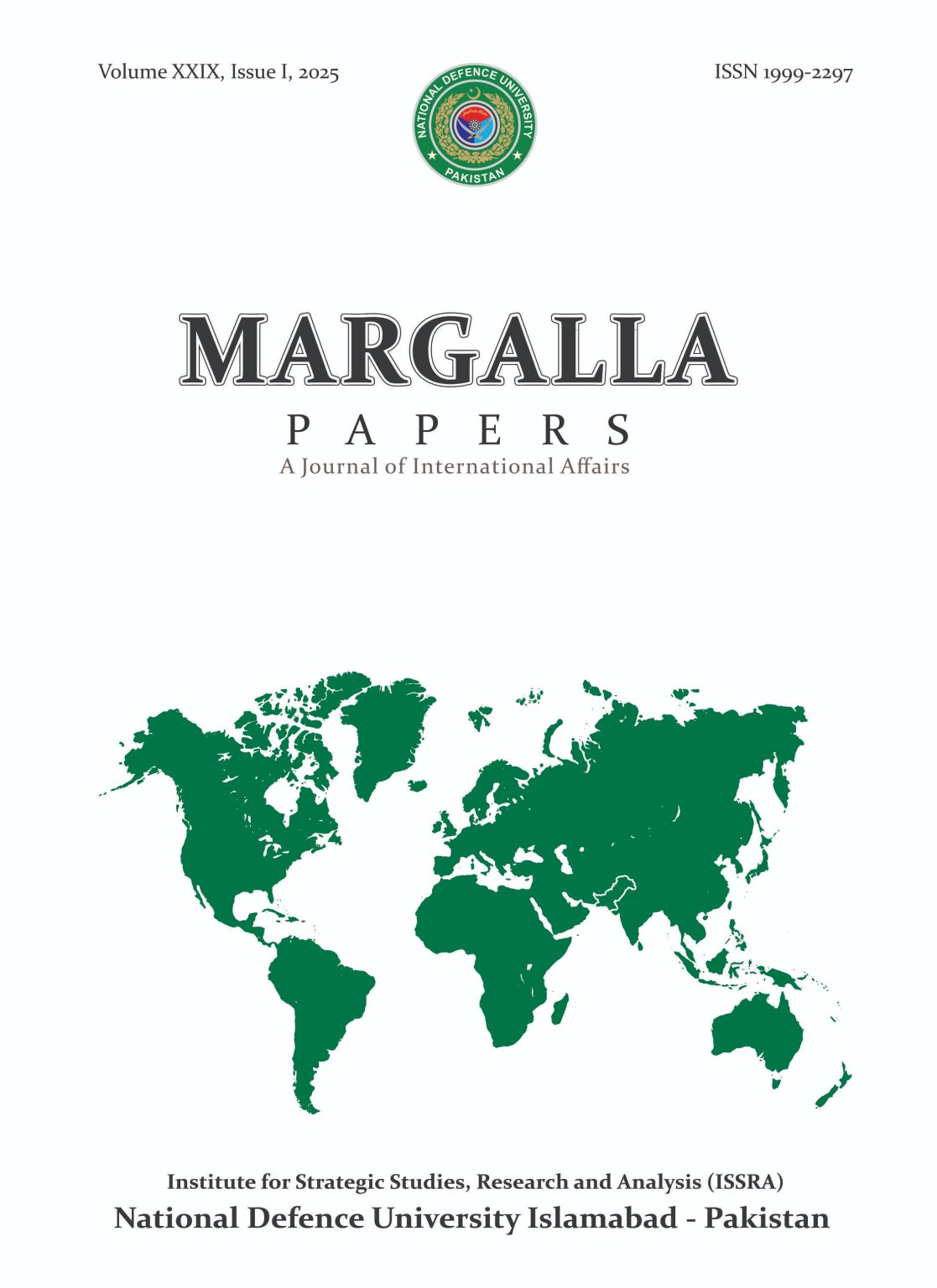Abstract
The advent of the Third Nuclear Age has transformed the global security environment, as this era is marked by the integration of emerging and disruptive technologies into the military and nuclear policies of major and regional powers. It weakens the traditional deterrence postures and adds to the complex global security environment. The challenges of these technologies are staggering in South Asia, where two nuclear-armed neighbours, India and Pakistan, are engaged in an enduring rivalry. Moreover, India’s acquisition of strategic non-nuclear weapons (SNNWs) such as offensive cyber capabilities, antisatellite capabilities (ASAT), and hypersonic missiles has blurred the lines between conventional and nuclear strikes. Since India has been heavily developing and deploying SNNWs, their implications for Pakistan’s security and regional strategic stability are profound, as they shorten response time and raise the probability of miscalculations. In this context, the recent escalation-cum-retaliation mini-war has been briefly assessed in this study through the lens of SNNWs. Lastly, this paper attempts to analyse the types of SNNWs, India’s advancements in this domain, and their impact on the existing deterrence framework in South Asia. This paper hypothesises that India’s acquisition of SNNWs can have profound implications for Pakistan’s security and would undermine strategic stability in South Asia. It also provides valuable policy inputs to Pakistani policymakers and stakeholders to sustain a credible deterrence posture amid India’s technological developments.
This paper was published in Margalla Papers 2025, Vol. 29 No. 1
Ms Anum A. Khan is Associate Director Research at the Center for International Strategic Studies (CISS), Islamabad.
Maryyum Masood is working as a Research Officer & Associate Editor at the Center for International Strategic Studies (CISS) Islamabad. She is an MPhil scholar in the Department of Strategic Studies at the National Defense University (NDU) Islamabad.
Amna Saqib is Research Officer & Assistant Editor at the Center for International Strategic Studies (CISS) Islamabad.

